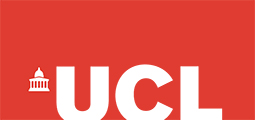Earlier this month we were saddened to announce the passing of Sir Maurice Hatter, a great friend and supporter of The Hatter Cardiovascular Institute and UCL itself. In looking back at the nearly 30 years of Sir Maurice’s patronage, it was remarkable what has been achieved thanks to his, generosity and belief in our research work.
With over 200 staff and students passing through the Hatter Cardiovascular Institute since its inception, we have secured major grant funding from leading medical grant awarding bodies such as the British Heart Foundation, Medical Research Council, National Institute for Health Research and the Wellcome Trust. This funding has enabled innovative research, inter-disciplinary collaborations and the development of strong scientific partnerships around the world. This has all culminated in steady progress in the quest to better understand cardiovascular disease and therapies.
Further, with the specific support of the Hatter Foundation, our Institute has in recent years expanded its research platforms to include both Neuroprotection and Cardiotoxicity (Cardioprotection following Chemotherapy). Sir Maurice’s ability to see the value in this important research enabled the foundations of these new programmes to become established. Sir Maurice would have been very proud to know our team is now taking a lead in COVID-19 research by re-focusing our knowledge in immune response in ischaemia to try tackle this worldwide pandemic.
An avid supporter of education around the world, Sir Maurice was a keen advocate of our many educational meeting initiatives which are now active on 4 continents. As a recognised centre of excellence, the Hatter Cardiovascular Institute continues to attract the best of post-graduate and medical students from around the globe. Their hard work and new ideas continue to enrich our learning environment. Maurice always enjoyed visiting the laboratories and meeting the research team; as an engineer himself he was always discussing various technical aspects of the work and equipment that we used.
Looking back over the past 30 years, it is truly remarkable what has been achieved through the generous support of Sir Maurice and his Foundation. His long standing encouragement and belief in the research and education we undertake has allowed the team at the Hatter Cardiovascular Institute to advance knowledge in cardiovascular science significantly. We shall continue our pursuits in his memory.

